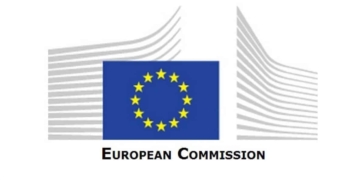When I talk to agency owners in my office, I often recognize the same challenges that I experienced myself as a former agency owner. The creative industry thrives on trust, handshake quality and quick decisions. But that’s precisely why a solid agency contract is the foundation for successful collaboration with clients. After 25 years as an entrepreneur in the digital industry and almost 20 years as a lawyer, I would like to share my most important insights into legally compliant contract drafting with you today.
Why “standard T&Cs” are not enough for agencies
Just last week, an agency owner came to my office to have her existing general terms and conditions reviewed. When I looked at the documents, it quickly became clear that the standard texts adopted from an industry association did not fit her specific business model at all.
As someone who has founded and managed agencies myself, I know both sides of the table – the entrepreneurial and the legal. What works for a traditional advertising agency may be completely unsuitable for a performance marketing agency.
The most important components of a modern agency agreement
Service description – more than just buzzwords
An example from my practice: A digital agency had “full-service online marketing” as a service description in its contract. When the client later demanded SEO optimization, content creation and social media management as a “self-evident” part of the package, there was a rude awakening.
What I therefore always advise my clients to do:
– Define your services precisely and unambiguously
– Clearly delineate basic and additional services
– Describe the process for changes and extensions
– Define the client’s responsibilities and obligations to cooperate
Remuneration – clever and secure
As an investor in a marketing agency, I know the importance of stable cash flows. A well-structured remuneration model not only protects the agency, but also creates transparency for the client.
The following are particularly important:
– Clear payment terms and deadlines
– Arrangements for payment on account for larger projects
– Transparent handling of additional services
– Mechanisms to safeguard against late payment
Rights of use – the often overlooked lever
One topic that is particularly close to my heart, as I know the challenges from my own experience: the transfer of usage rights. Many agencies give away money here by granting rights that are too far-reaching.
My practical recommendations:
– Stagger the granting of rights according to the scope of use
– Link extended rights of use to additional remuneration
– Retain rights for self-promotion
– Secure your rights to templates and frameworks
Mastering modern challenges with legal certainty
Contractual mapping of agile project implementation
The days of rigid waterfall models are over. As a lawyer who deals with digital projects on a daily basis, I advise flexible contract structures that enable agile working methods:
– Framework agreements with specific project attachments
– Clear processes for changes during the course of the project
– Definition of decision paths and escalation levels
– Transparent documentation of project progress
Remote collaboration and international customers
Digitalization is making agency work increasingly location-independent. From my consulting experience, I know that this requires special contractual provisions:
– Clear communication channels and contact persons
– Provisions on time zone differences and availability
– Agreements on tools and platforms
– Data protection safeguards
Practical tips for agencies
After almost two decades of providing legal advice to agencies, here are my top tips:
1. invest in good contracts
– they are your most important tool for protection
– standard contracts are only a starting point
– regular review and adjustment is important
2. documents important agreements
– also for long-standing customer relationships
– especially in the event of changes during the course of the project
– e-mail confirmations of important agreements
3. creates clear processes
– for change requests and additional services
– for the acceptance of services
– for invoicing and payment tracking
Conclusion
As someone who knows both the business and the legal side of agency work, I can only emphasize this: A well-drafted agency contract is not an obstacle to trusting collaboration, but rather its foundation. It gives both sides the security to concentrate on the essentials: great creative work.
Do you need support in drafting your agency contracts? As a lawyer with my own experience in the digital industry, I not only understand the legal side, but also your practical challenges. Let’s work together to develop contract structures that suit your agency and free you up for your creative work.












































